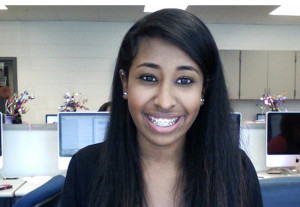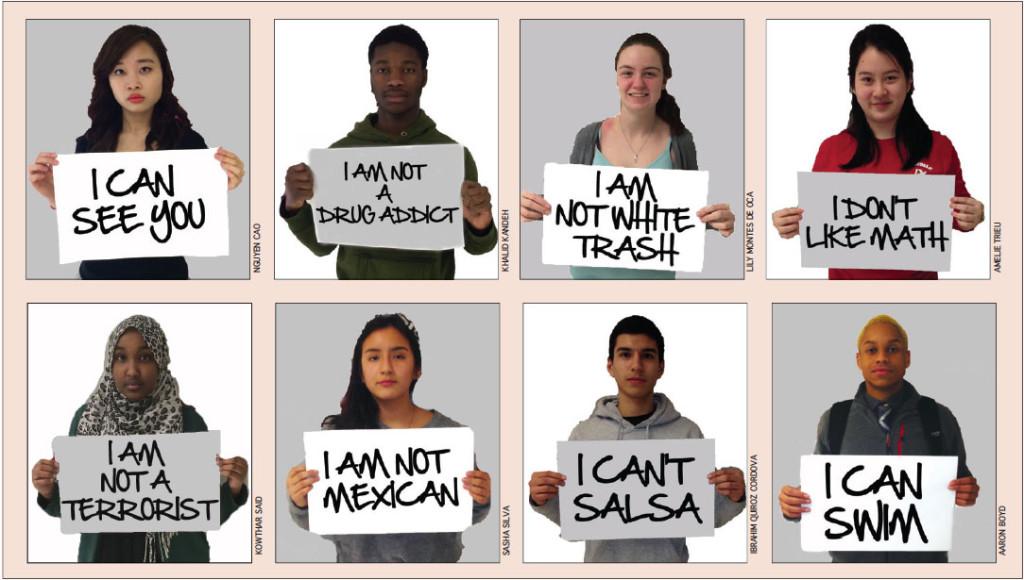Super Bowl prompts student discussion about race relations
“Nice to see that Coke likes to sing an AMERICAN song in the terrorist’s language. Way to go Coke. You can leave America.”
Welcome to the 21st century’s racist utopia.
When Coca-Cola debuted a commercial during the Super Bowl of a one minute clip of America The Beautiful, it promoted the very ideals that the United States was built upon – the nation of diversity that embraced those within its walls.
But with the start of Black History Month and as the nation celebrates the lives of those who have aided in the endeavor of civil equality, a new era has ushered in, an era of racial ignorance, profiling and misguided misconceptions.
According to the CNN, it is believed that by the year 2030, minorities will make up a majority of those under the age of 18 and by 2042, “non-whites” will be the majority of the American population.
A nation created by the arrival immigrants, it’s quite uncomfortable to note the maltreatments and bigoted remarks towards varying ethnicities and races today.
When the 6-foot-3, 194 pound Richard Sherman conducted his post-interview after winning the NFC Championship, all eyes watched Sherman proclaim his supremacy as the best cornerback in the lead denouncing Michael Crabtree – his league rival.
Twitter quickly went ablaze against the Seattle Seahawks cornerbacks with an overwhelming majority of the tweets labeling Sherman as a “thug.”
Which is an odd thing to call a Stanford graduate, who graduated highschool with a 4.2 GPA and came out of Compton, California one of the nation’s most crime ridden cities.
“At first I really didn’t care about it, I thought he did look really scary and thug-like. After some thought though I realized that he isn’t a thug at all,” senior Lailumah Faisal said. “He’s a successful African- American and I feel like some people can’t accept that fact, but they just need to get over it. If people continue to be so ignorant then we’re all just going to end up hating each other.”
Sherman drew even larger glances his way, when he directly attacked those calling him a thug. Saying that the word was synonymous to degradation of his race, which was a valid testament.
“It’s like everybody else said the n-word and then they say ‘thug’ and they’re like, ‘Aw, that’s fine,” Sherman said to reporters. “It kind of takes me aback.”
“Like what personifies someone to be a thug? A tall, black guy riled up?” senior Kowthar Said said. “It just makes me uncomfortable to see people labeling this person without actually learning his background and learning who he is as a person.”
With Trayvon Martin’s 19th birthday commemorated this month and New York City’s Mayor Bill de Blasio pledging reforms to the NYPD’s Stop and Frisk, it’s become to feel like an era surrounded by misguided profiling.
According to the NYPD Spokesperson Paul Browne, Blacks make up 53% of stop subjects, and Hispanics make up 34%.
“I don’t think that we necessarily live in an era that’s racist overtly. But more of a generation of people who are keen to fall for stereotypes, profiles and bigoted beliefs about people,” Said said.
“People don’t understand the background of more than just than Muslims and Asians. There’s more to stereotypes than black and white.” senior Lily Montes De Oca said.
According to statistics provided by the AHS database, 43% of Annandale students were born outside of the United States and 70% of students speak a language other than English. The student body, so diverse, is crucial in its understanding of the cultures that comprise it.
“Quoting Mr. Hawes, ‘Annandale is “ground zero” for diasporas,’” senior Amelie Trieu said. “Annandale is one of the most diverse schools in the nation, and we don’t realize how unique that is. But some students don’t really realize that or think about it. I bet a lot of people who go here have accepted diversity and they don’t realize it until they go out of their comfort-zones.”
But it’s more of an issue of understanding.
“Ignorance does not just disappear by being around others. Until people make an effort to learn about other cultures ignorance will always remain,” president of the
South-Asian Student Alliance senior Elisha Musih said.

This is Omnia’s fourth year on staff starting off as International Editor her sophomore year. Also a member of National Honor, Social Studies Honor and...







